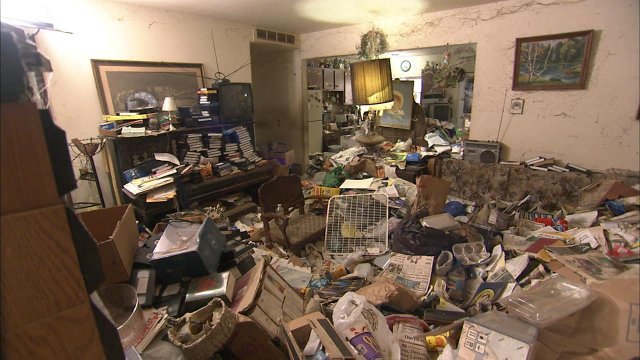 Hoarding is a disability that creates special problems for landlords. Hoarders are often secretive, and by its very nature the activity often does not become apparent until it is reached the point where there is a health or safety risk. In addition, a reasonable accomodation may still require that the tenant take affirmative action that is both difficult and possibly expensive. Dealing with the reasonable accommodation requirements of the Fair Housing Act under these circumstances requires special care.
Hoarding is a disability that creates special problems for landlords. Hoarders are often secretive, and by its very nature the activity often does not become apparent until it is reached the point where there is a health or safety risk. In addition, a reasonable accomodation may still require that the tenant take affirmative action that is both difficult and possibly expensive. Dealing with the reasonable accommodation requirements of the Fair Housing Act under these circumstances requires special care.
A case from District of Columbia Court of Appeals, Douglas v. Kriegsfeld, 884 A.2d 1109 (D.C.App. 2005) illustrates what not to do it. The tenant in this case was not a hoarder, but was an alcoholic whose apartment to become filled with garbage. Over a vigorous dissent, the District of Columbia Court of Appeals, en banc, required that the landlord give the tenant a second chance to clean up the mess before evicting her. What lay behind this decision was the fact that discussions between the tenant, her lawyers, and the landlord about how to deal with the situation had been vague and inconclusive at best. The tenant never quite demanded a specific reasonable accommodation, while the landlord never offered a specific reasonable accommodation.
The Court seemed to recognize that the only reasonable accommodation for a tenant who could not keep an apartment clean enough to be sanitary was an opportunity to clean up. Unfortunately the tenant never requested a specific time in which to accomplish the cleanup and the landlord never set a deadline. Instead they fought over who should have asked whom for some solution to the problem. It appears that while the legal battle continued nothing was done to actually clean up the apartment, so the ultimate result was the case being sent back to the trial court to fix a time for the cleanup.
This kind of standoff between two parties, each of whom insists that the other make the first move, is especially likely to occur in the case of hoarders. After all, when garbage presents a health or safety hazard the only reasonable accommodation will be a cleanup, but cleaning up is precisely the thing a hoarder is psychologically unable to do. While the FHA may require that the hoarder make the first move by requesting a reasonable accommodation, as a practical matter it will be up to the landlord to make a specific proposal in order to lay the groundwork for eviction or, with luck, get the problem solved.
There is an excellent discussions of the hoarding problem at the Property Management Insider web site, http://www.propertymanagementinsider.com/hoarding-recognized-mental-disorder.html, but based on the few existing cases I would suggest that the long term approach suggested in this article will often not be satisfactory. When hoarding is noticed before the problem becomes a threat to other tenants it may be possible to work with the hoarder over the long term, but once an apartment begins to smell or pose a fire hazard the landlord cannot afford to adopt such a strategy. In those cases the landlord’s obligation to other tenants requires action on a short term basis. When hoarding is discovered under these circumstances the landlord needs to (1) realistically assess the dangers related to hoarding, (2) devise a plan that gives the tenant time to clean up that is reasonable based on the degree of threat, and (3) propose the plan to the tenant, with a willingness to make reasonable compromises if they are requested.
A realistic appraisal of the risks from hoarding is the necessary first step because a reasonable accomodation has to be based on actual risks. For example, a few stacks of newspaper in the middle of a room pose relatively little risk, while newspapers or other goods stacked on a stove present an immediate risk, as do items that block windows and exits. A reasonable plan would require rapid removal of items constituting a severe fire risk but allow a longer time for less dangerous items. The same would be true of unsanitary conditions that need quick action. The key is that the appraisal of risk be reasonable and the accommodation offered match the appraisal.
Once the analysis of risk has been made it must be followed through. If the tenant will not agree to the plan or propose his own, the Landlord must act on the plan. After all, if the landlord concludes that the risk of fire is so great that the tenant should be allowed only two days to clean up, but then waits four months to take action, a court is likely not to believe the situation was as risky as claimed. In fact, if the landlord finds himself reluctant to evict because of a short term failure to act it may be a clue that the risk was not as great as it first seemed.
It is also critical that the landlord make some effort to communicate with the tenant, although that too depends on the nature of the risk. The making of a proposal should be documented, as well as any discussion of a counter-proposal. In the process, it is critical that the landlord always make specific proposals with specific deadlines that are reasonable so there is no doubt about what is required.
Eviction is always a last resort, especially since cleanup will usually be expensive; however, the risk of a lawsuit may be less important than the risk of a fire, disease or other threats to health and safety. Protection of tenants will ultimately trump avoiding litigation.

